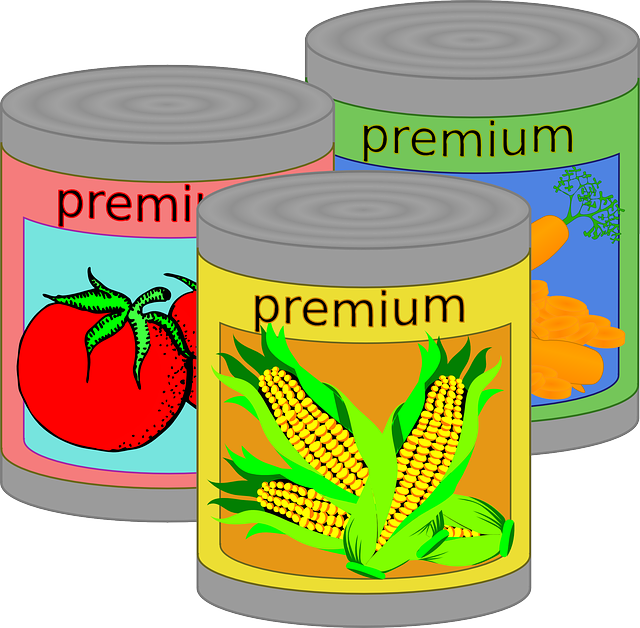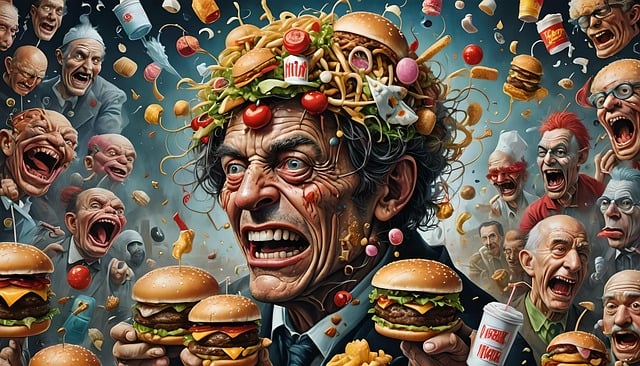The article examines the peculiar market of weird canned food, with a focus on canned raccoon as an exemplar of novelty items. These cans, which are not for consumption, serve as humorous gag gifts popular among collectors who appreciate macabre or unusual objects. They reflect American consumer culture's creative and humorous side, often repurposing products beyond their traditional uses. The craze for canned raccoon within gag gift culture showcases the appeal of dark humor rooted in unexpectedness and absurdity. This phenomenon challenges societal norms by presenting a non-edible animal like a raccoon in the familiar context of canned goods, creating a visual incongruity that elicits a comedic response. The item not only amuses but also prompts a broader discussion on personal consumption habits, environmental sustainability, and animal welfare, offering a unique perspective on consumerism and humor.
Embark on a whimsical exploration of human whimsy with our latest article, which delves into the quirky realm of weird canned food. Among these culinary curiosities stands out the enigmatic canned raccoon, a gag gift that has sparked conversations and chuckles in equal measure. This piece not only unravels the anomalous appeal of such an item but also dissects the broader implications of its presence in gag gift culture. Join us as we examine the anatomy of a joke and the ethics entwined with humor, shedding light on the nuances of consumerism through the lens of this peculiar canned commodity. Prepare for a playful yet insightful journey into the heart of gag gift trends and the oddities they reveal about our collective sensibilities.
- Exploring the Oddities of Weird Canned Food: The Curious Case of Canned Raccoon as a Gag Gift
- The Anatomy of a Joke: Understanding the Canned Raccoon Fad and Its Place in Gag Gift Culture
- Unpacking the Ethics and Humor Behind Canned Raccoon: A Deep Dive into Gag Gift Consumerism
Exploring the Oddities of Weird Canned Food: The Curious Case of Canned Raccoon as a Gag Gift

The realm of weird canned food often yields surprises that range from the whimsical to the downright bizarre. Among these culinary curiosities, canned raccoon stands out as an exemplar of the gag gift market. These cans are not intended for consumption but rather for humor and as a novelty item. The concept behind canned raccoon is rooted in the tradition of practical jokes and the fascination with the oddities of consumer products. Collectors and enthusiasts of the macabre or the simply unusual often seek out these canned items, which are usually empty, to display as part of a quirky collection or as a conversation starter.
The allure of canned raccoon as a gag gift lies in its ability to evoke a wide spectrum of reactions, from amusement to bewilderment. It’s a testament to the creativity and humor found in American consumer culture, where products are often pushed to the limits of practicality and reason. These cans, with their vintage appeal or novelty packaging, are a nod to the history of canned goods, which have traditionally preserved food for sustenance, now repurposed for entertainment. The niche market for such items highlights a subculture that appreciates the oddities of weird canned food, embracing the humor and peculiarity inherent in these gag gifts.
The Anatomy of a Joke: Understanding the Canned Raccoon Fad and Its Place in Gag Gift Culture

The canned raccoon fad, a peculiarity in gag gift culture, epitomizes the anatomy of a joke that thrives on unexpectedness and absurdity. At its core, this novelty item plays into the realm of weird canned food items, challenging societal norms surrounding edible goods. The concept of preserving a raccoon, an animal not commonly associated with human consumption, in a can typically reserved for more conventional foods like vegetables or meats, is inherently humorous. It subverts expectations and pokes fun at the idea of canned food’s practicality, transforming it into a whimsical and bizarre commodity. The humor lies not only in the visual absurdity but also in the cognitive dissonance it creates; the item is both a can of food and an unappetizing curiosity. This juxtaposition of the mundane act of canning with the unusual subject matter exemplifies a type of dark comedy that has found a niche within gag gift culture. It’s a testament to the genre’s ability to surprise and entertain through incongruity, making the canned raccoon a beloved oddity among collectors and a memorable conversation starter for its recipients. The item’s place in gag gift culture underscores the broader appeal of the weird canned food niche, where novelty outweighs nutritional value, and humor is found in the bizarre and unexpected.
Unpacking the Ethics and Humor Behind Canned Raccoon: A Deep Dive into Gag Gift Consumerism

Canned raccoon, a curious entry in the realm of novelty gag gifts, raises questions about consumerism and humor that are as intriguing as they are peculiar. At its core, this product exemplifies a niche within gag gift consumerism where the line between whimsy and excess is drawn with a fine pen. The concept of canned raccoon taps into the human fascination with oddities and the collection of ‘unnecessary’ items that serve no practical purpose beyond their comedic value. This phenomenon reflects a broader trend in consumer culture, where the novelty and uniqueness of products often outshine their utility.
The ethical implications of producing and consuming such items are multifaceted. On one hand, the humor derived from canned raccoon can be seen as harmless fun, a playful nod to humanity’s quirky side. On the other, it prompts consumers to reflect on their purchasing habits and the environmental and ethical impact of novelty products. The production of these items involves considerations of animal welfare, resource consumption, and waste management. As such, canned raccoon becomes a conversation starter not just about humor but also about our relationship with consumer goods and the broader societal implications of gag gift consumerism. In the context of ‘weird canned food,’ canned raccoon stands as an exemplar, challenging both our taste for the bizarre and our capacity to find laughter in the unexpected.






